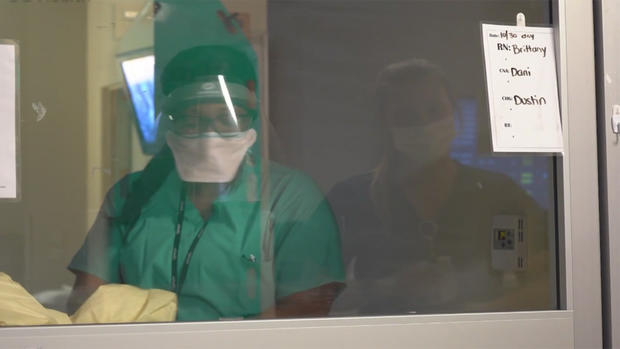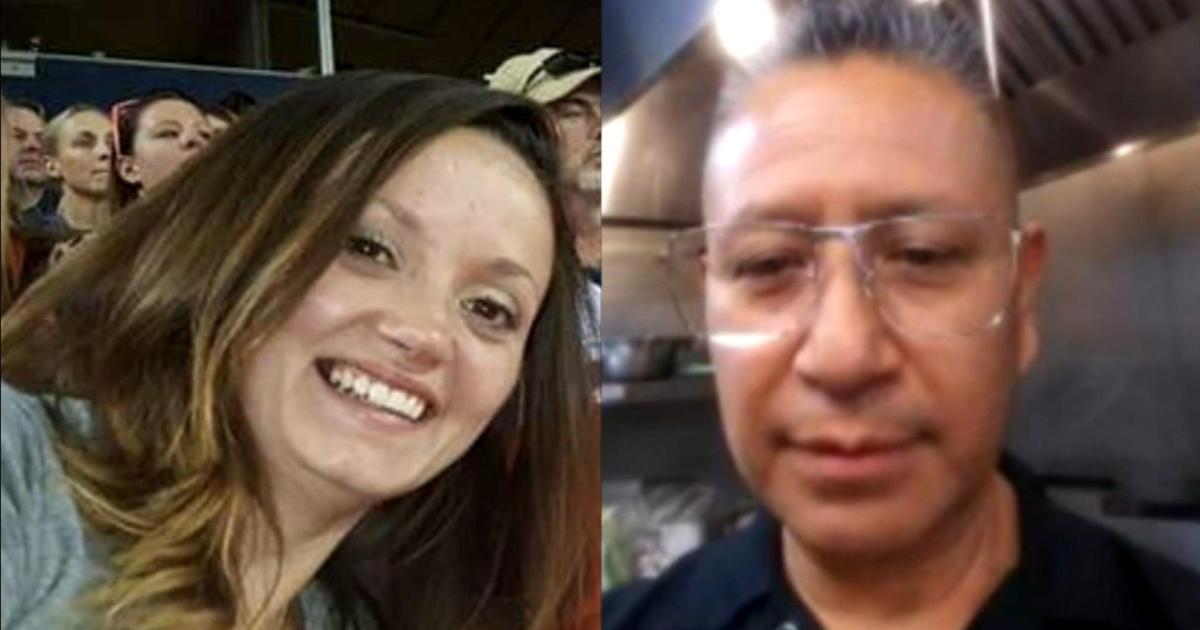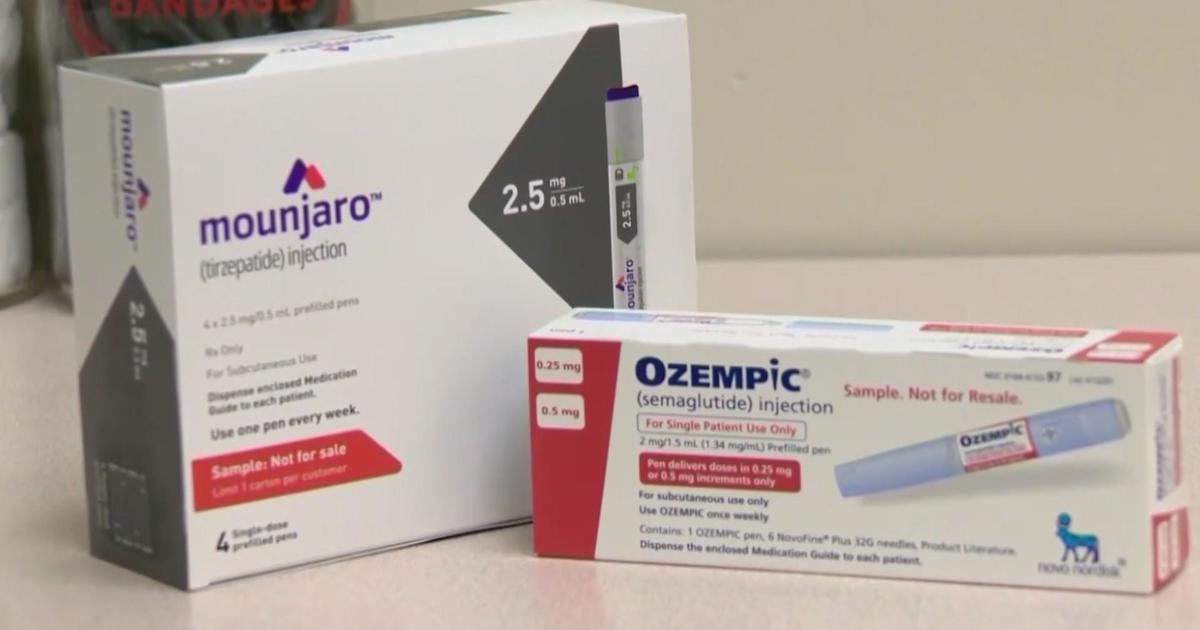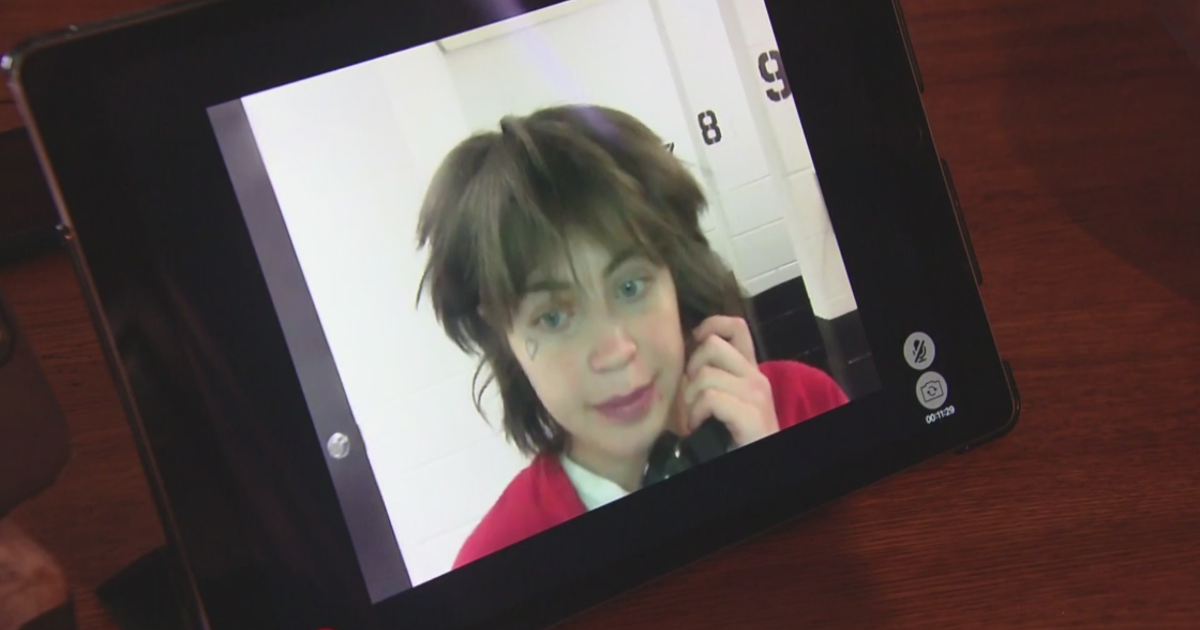American College Of Emergency Physicians Asks Colorado Leaders For Immediate Help
(CBS4) - While Colorado's top doctors may agree the spread of the omicron variant has reached its peak in many areas, emergency room physicians are asking the state to for immediate assistance as some front-line health care workers burn out amid numerous roadblocks.
"We still have a couple more weeks at least of very high case rates and associated hospital utilization and you've got to remember, this is a time of year when you typically have people seeking health care at high rates even without the pandemic being here and so people still have heart attacks, strokes, high acuity medical conditions that need to be addressed and we want to continue to provide those services and we think there's some potential ways in which we can work with the governors office, with the state health department to address some things that can be improved," said Jamie Dhaliwal, an Emergency Physician and Medical Director at Saint Anthony North.
Dhaliwal also sits on the board of the American College of Emergency Physicians, which sent a letter to the state last week saying, "We need your help ASAP!"
"The emergency department is kind of the front door of the health care system and so we're a little bit of the canary in the coal mine when it comes to issues in particular with the pandemic. We tend to be the first place where issues with our pandemic response tend to pop up," said Dhaliwal.
According to the state dashboard, 92% of acute care hospital beds are in use currently compared to 76% this time last year. In the letter to the state:
"Nursing shortages decrease the number of physical beds a hospital can staff which leads to significant downstream problems. As patients arrive in our EDs requiring life-saving treatments and subsequent admissions, there are often no inpatient beds available and we are forced to "board" them in the ED. In this situation, we effectively shrink the number of beds for new ED patients as they are now occupied by inpatients."
The shortage has also created increased stress on existing staff. CBS4 has spoken with a number of health care workers who are concerned over changes in staff COVID protocol. The shortage means some essential positions are required to work if they are asymptomatic (with proper PPE), even after a positive result.
"Currently we have crisis standards of care with respect to staffing across the state and that means that the situation is critical and we need to be available to provide health care to our communities, and at times that means that we've got to adjust our return-to-work policies accordingly and I think our health systems are doing things in accordance with both CDC and CDPHE guidelines," he said. "But yeah, that means that certainly essential workers, health care workers will have some different return-to-work guidelines than elsewhere because we have to take care of our communities.
One health care worker, who did not want to be identified, sent a statement to CBS4 saying he hoped the letter from the ACEP would result in more immediate resources.
"People are going into hospitals not having COVID and leaving with COVID, because the health care workers are positive. Do you really think the man I just saw in ICU on a ventilator for over a month and survived wants to know that it's possible the people who were treating him are also positive? What about my family? What about my friends?" he continued. "I have seen the bodies being wheeled to the morgue -- I have seen us run out of body bags."
The ACEP is working closely with CDPHE and legislators on solutions but says more work needs to be done.
"We've gotten some resources throughout the state but from the perspective of patients seeking care right now, we've got some work to do to make our response to the pandemic more robust and make sure that every patient who has an emergency medical condition is able to get timely care at emergency departments throughout the state," said Dhaliwal. "So things like facilitating transfers between hospitals, potentially offering some liability protections for folks that are working on the front lines. These are things that we're actively working with our state health department the governor's office as well as state legislators about."
The state said it has activated crisis standards of care for hospital staffing and emergency medical services. At this time, it hasn't activated crisis standards of care for hospital and acute care facilities, out of hospital care providers, specialty patient populations or for personal protective equipment. In a statement to CBS4, the CDPHE said it hopes it doesn't need to for these categories.
"That means that we're not in situations where we need to determine who does and does not get ventilators. It does mean that our hospitals are full and we're short staffed and we need to get creative with how we give care to all the people that need it right now," said Dhaliwal.
Dhaliwal says the ACEP's work with the state is ongoing and he's hopeful by working together, they can tackle some of the top priorities listed in the letter in the immediate future.




